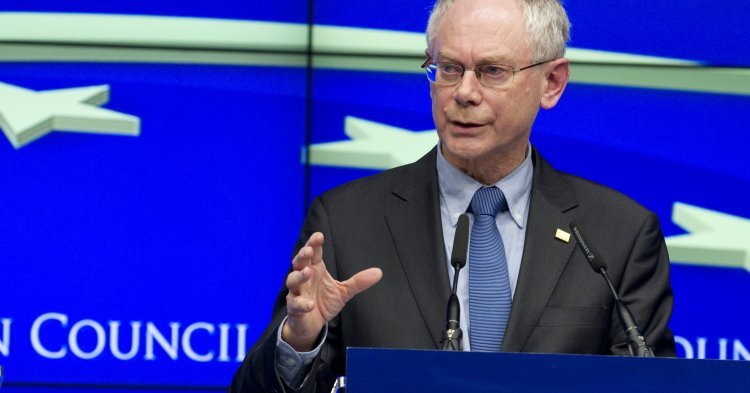The TNF : Your nomination at the head of the European Council raised key concerns. How did you manage to assert yourself against the 27 Heads of Government?
The 27 Heads of State or Government and the President of the European Commission form together the European Council: they elected me on 19 November 2009 at this new position. Thus I have 27 electors. With the Heads of State or Government, the European Council gives the political direction and priorities for the future of the European Union. In this framework I see my role as one of facilitator, willing to achieve the most we can.
The TNF : The situation in Libya remains worrying, how can you, in command of the most important political institution of the European Union, contribute to the resolution of the conflict?
Herman Van Rompuy : Europe is in the front line of helping countries of the Arab Spring, or the Arab Springs. Today, the European Union is mobilising to respond to the immediate needs, i.e.: to help the displaced populations, but as well to ensure a long term presence. One has to help these countries in order to organize elections, to support the civil society, to establish the rule of law and to revitalize the economy. To these countries of the south shore of the Mediterranean we offer a solid partnership. Moreover, in order to develop in the Mediterranean region an area of liberty and prosperity these countries can inspire themselves from the success of European Integration that started 60 years ago.
The TNF : Rumors are flying around concerning a partial restructuration of the Greek debt. What is the June European Council going to decide in this regard?
Herman Van Rompuy : I am fully aware this is a sensitive issue. We continue to work with our partners to find a solution. We need to reach a deal. Important decisions have to be taken in the next few days concerning the overall situation of the Euro area, and in particular latest developments in Greece. The country has to reach an agreement in its Parliament on a new package of measures. I call on all Greek parties to take their responsibilities at this crucial juncture, and to act in a united manner.
Subject to this, the IMF and the Euro area will be able to disburse the next tranche of the programme as already indicated by the IMF. Beyond, we are working on a new programme to be rapidly finalised with additional financing. It should also include voluntary financing from the private sector. In my view there are two red lines that should be entirely respected: it should not trigger credit events nor credit default. In the difficult time we are facing, we tend to forget that the euro area as a whole has strong economic fundamentals.
Most importantly, the collective economic recovery of the Euro zone is encouraging, with forecasts of overall economic growth close to 2 percent in 2011 and 2012.
The TNF : The European Council of June is going to be tough, what are your objectives for the European Union regarding the Schengen area?
Herman Van Rompuy : There is unanimous agreement among the European Council that free movement of persons is one of the most tangible and successful achievements of European Integration as well as a fundamental right of citizens. Nobody wants to weaken the Schengen area, on the contrary: Political guidance and cooperation in the Schengen area need to be further strengthened because the key to a well functioning area of free movement is mutual trust between Member States. Therefore, everyone has a responsibility to make sure that the Schengen rules are applied in accordance with the agreed common standards. The basis for all this is common responsibility, solidarity and increased practical cooperation.
How to get in touch with the President?
Speak directly to him on : www.askthepresident.eu !

Follow the comments: |
|
